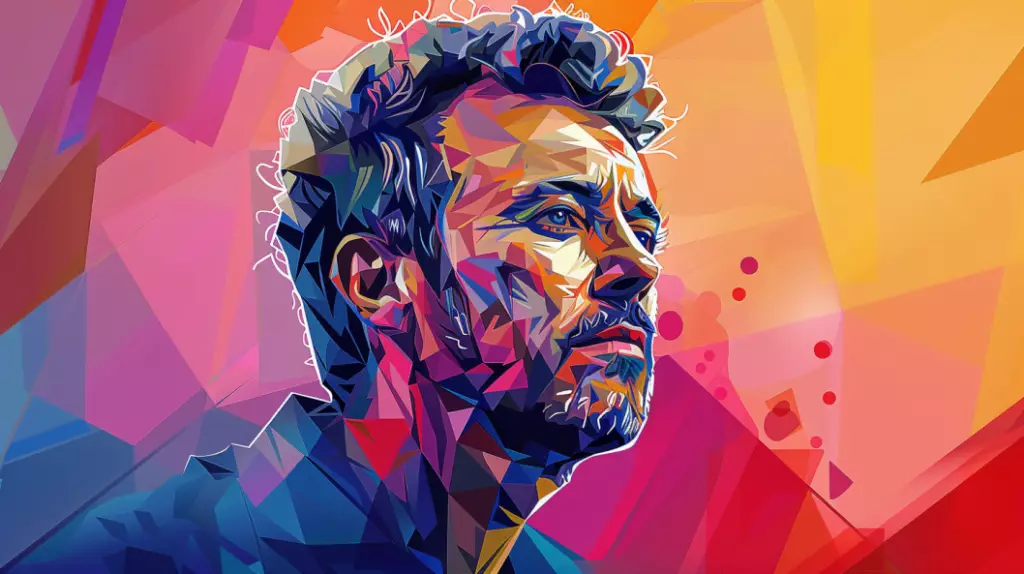Luis Enrique is one of the most enigmatic figures in modern football. He has left an indelible mark on the sport and continues to captivate the world with his unique coaching style and strategic brilliance. He is a highly accomplished football coach for his successful stints at various clubs and unique coaching philosophy. Throughout his career, he has strongly emphasized possession and attacking play while prioritizing team unity and work ethic. His leadership style has been praised for motivating players and creating a positive team culture. In this article, we will take a closer look at Luis Enrique’s coaching career, his coaching philosophy, the teams he has coached, his tactical approach, his leadership style, his transfer strategy, his training methods, his record in major tournaments, his relationship with players, and what the future holds for this accomplished coach.
Luis Enrique: A Brief Introduction to the Coach’s Career
Luis Enrique began his football career as a player, playing for top clubs such as Barcelona and Real Madrid. After retiring as a player, he transitioned into coaching and started his journey at Barcelona B, the reserve team of FC Barcelona. He quickly made an impact and led the team to promotion to La Liga. This success caught the attention of other clubs, and he went on to coach Roma in Italy and Celta Vigo in Spain before returning to Barcelona as the head coach.
Luis Enrique’s Coaching Philosophy: A Winning Formula
Luis Enrique’s coaching philosophy is centered around possession and attacking play. He believes in dominating games through ball control and creating scoring opportunities through quick, incisive passing. His teams are known for their fluidity in attack and ability to break down defenses with intricate passing movements.
In addition to his emphasis on possession and attacking play, Luis Enrique also places great importance on team unity and work ethic. He believes a strong team is built on trust, communication, and a shared commitment to success. He instills these values in his players and encourages them to work hard for each other on and off the pitch.
Furthermore, Luis Enrique understands the importance of balancing individual talent with team success. While he recognizes the importance of having talented players, he also emphasizes the need for players to put the team’s goals above their achievements. This approach has been key to his success as a coach, allowing him to create a cohesive and harmonious team capable of achieving great things.
The Teams Luis Enrique Has Coached: A Look at His Successes
Luis Enrique has had success at every club he has coached. At Barcelona B, he led the team to promotion to La Liga, showcasing his ability to develop young players and prepare them for the first team. Returning to Barcelona as the head coach, he immediately succeeded by winning the treble in his first season, including La Liga, the Copa del Rey, and the UEFA Champions League.
Strong performances also marked his time at Roma and Celta Vigo. At Roma, he guided the team to a second-place finish in Serie A, their highest league position in years. At Celta Vigo, he led the team to a top-half finish in La Liga and secured qualification for European competitions.
Luis Enrique’s Tactical Approach: Analyzing His Game Plan
Luis Enrique typically employs a 4-3-3 formation, allowing for a balanced approach to attacking and defensive play. This formation provides stability in defense with four defenders while also allowing for attacking width with three forwards.
One of the key aspects of Luis Enrique’s tactical approach is the importance of full-backs in attack. He encourages his full-backs to push forward and provide width in attack, creating overloads in wide areas and stretching the opposition’s defense. This allows his teams to create more scoring opportunities and exploit spaces left by opposing defenders.
Another notable aspect of Luis Enrique’s tactical approach is his flexibility in adapting to opponents. He is known for making tactical adjustments based on the strengths and weaknesses of the opposition, allowing his teams to exploit any vulnerabilities and neutralize the opposition’s threats.
Luis Enrique’s Leadership Style: How He Motivates His Players

Luis Enrique’s leadership style is characterized by his ability to build strong relationships with his players. He takes the time to understand each player individually and creates an environment where they feel valued and supported. This approach allows him to motivate his players and get the best out of them.
In addition to building strong relationships, Luis Enrique holds his players accountable for their actions. He sets high standards and expects his players to meet them on and off the pitch. This creates a culture of discipline and professionalism within the team, ultimately leading to success.
Furthermore, Luis Enrique creates a positive team culture by fostering a sense of unity and shared goals. He encourages his players to work together as a team and emphasizes the importance of collective success over individual achievements. This approach creates a strong bond within the team and helps them overcome challenges together.
Luis Enrique’s Transfer Strategy: Building a Winning Team
Luis Enrique’s transfer strategy is centered around identifying players who fit the team’s style of play. He looks for players who are technically gifted, tactically intelligent, and have a strong work ethic. By bringing in players who align with his coaching philosophy, he ensures they can integrate into the team and contribute seamlessly to its success.
In addition to identifying players who fit the team’s style of play, Luis Enrique also balances short-term needs with long-term goals. He understands the importance of building a squad capable of competing at the highest level in the present and future. This requires careful planning and strategic signings that address immediate needs while considering the team’s long-term development.
Furthermore, Luis Enrique prioritizes building a strong squad with depth in all positions. He recognizes the importance of having quality options on the bench, as injuries and suspensions are inevitable throughout a long season. By having a deep squad, he ensures that the team can maintain its level of performance even when key players are unavailable.
Luis Enrique’s Training Methods: Preparing Players for Success
Luis Enrique strongly emphasizes physical fitness and technical ability in his training methods. He believes that players need to be physically prepared to compete at the highest level and execute his tactical instructions effectively. Therefore, he incorporates intense physical training sessions into his training regime to improve the players’ endurance, strength, and speed.
In addition to physical fitness, Luis Enrique also focuses on improving the players’ technical ability. He believes that players need to have a high level of technical proficiency to execute their attacking style of play. Therefore, he incorporates technical drills and exercises into his training sessions to improve the players’ ball control, passing accuracy, and shooting ability.
Furthermore, Luis Enrique utilizes small-sided games in his training sessions to improve decision-making and game intelligence. Playing in small-sided games forces players to make quick decisions under pressure and develop their ability to read the game. This approach helps the players better understand their roles within the team and improves their decision-making on the pitch.
Luis Enrique’s Record in Major Tournaments: A Closer Look
Luis Enrique has an impressive record in major tournaments, with his most notable achievement being winning the treble in his first season at Barcelona. This feat is considered one of the greatest achievements in football history, as it requires winning three major trophies in a single season.
In addition to winning the treble, Luis Enrique has succeeded in domestic cups and leagues. He has won multiple Copa del Rey titles with Barcelona and league titles with Barcelona and Roma. These achievements highlight his ability to consistently compete at the highest level and win trophies.
However, Luis Enrique’s record in European competitions has been more mixed. While he has succeeded in the UEFA Champions League, winning it with Barcelona, he has also experienced disappointments, such as early exits from the competition. Nevertheless, his overall record in major tournaments is still highly impressive and solidifies his status as one of the top coaches of his generation.
Luis Enrique’s Relationship with Players: Fostering a Winning Culture
One of the key factors behind Luis Enrique’s success as a coach is his ability to create a sense of unity and shared goals within the team. He understands that a strong team is built on trust, communication, and a shared commitment to success. Therefore, he works hard to foster a positive team culture where players feel valued and supported.
Luis Enrique holds his players to high standards and expects them to give their best in every training session and match. He believes he can push his players to reach their full potential and achieve great things by setting high expectations. This approach creates a culture of excellence within the team and helps them perform at their best.
Furthermore, Luis Enrique celebrates success and learns from failure with his players. He understands the importance of acknowledging achievements and rewarding hard work. At the same time, he also uses setbacks as learning opportunities and encourages his players to reflect on their performances and make improvements. This approach helps the team maintain a positive mindset and strive for success.
Luis Enrique’s Future in Coaching: What’s Next for the Accomplished Coach?
As one of the most successful coaches of his generation, Luis Enrique’s future in coaching is highly anticipated. There are several possibilities for what may be next for him. One possibility is coaching at the international level. With his track record of success at club level, he may be sought after by national teams looking for a coach who can lead them to glory in major tournaments.
Another possibility is a potential return to club management. Luis Enrique has proven himself as a highly capable coach at various clubs, and there may be opportunities for him to take charge of another top club in the future. His coaching philosophy and leadership style make him an attractive option for clubs looking to succeed on domestic and European fronts.
Regardless of what the future holds for Luis Enrique, his legacy as one of his generation’s most successful coaches is firmly established. His achievements, coaching philosophy, and leadership style have impacted the teams he has coached and the players he has worked with. He will be remembered as a coach who prioritized attacking play, team unity, and hard work, and his influence will continue to shape the football world for years to come.
Luis Enrique’s coaching career has been marked by success at every club he has coached. His coaching philosophy, which emphasizes possession and attacking play, and his strong emphasis on team unity and work ethic have been key to his success. He has achieved great things at Barcelona B, Roma, Celta Vigo, and Barcelona, winning multiple trophies and impacting each team he has coached.
His tactical approach, which includes using a 4-3-3 formation and the importance of full-backs in attack, has been highly effective in breaking down defenses and creating scoring opportunities. His leadership style, characterized by building strong relationships with players, holding them accountable for their actions, and creating a positive team culture, has motivated players to perform at their best.
Luis Enrique’s transfer strategy focuses on identifying players who fit the team’s style of play and balancing short-term needs with long-term goals. His training methods prioritize physical fitness and technical ability while incorporating small-sided games to improve decision-making. His record in major tournaments is highly impressive, with his most notable achievement being winning the treble in his first season at Barcelona.
Luis Enrique’s relationship with players fosters a sense of unity and shared goals, holds players to high standards, and celebrates success while learning from failure. As for his future in coaching, there are several possibilities, including coaching at the international level or returning to club management. Regardless of the future, his legacy as one of the most successful coaches of his generation is already firmly established.
If you’re a football enthusiast and want to stay updated on the latest news and insights about coaches, you should check out “Coach Watch” on Kicka Football. This article provides an in-depth analysis of Luis Enrique’s coaching style and tactics. From his time at Barcelona to his current role as the head coach of the Spanish national team, this piece offers valuable insights into Enrique’s approach to the game. To read more about it, click here.






